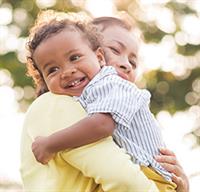 Children can come into contact with pesticides every day. Pesticides are chemicals that are used to kill unwanted things like insects, weeds, rats, and more. Pesticides are used in many products that you might have in your home. Some pesticides can cause health problems, especially in children.
Children can come into contact with pesticides every day. Pesticides are chemicals that are used to kill unwanted things like insects, weeds, rats, and more. Pesticides are used in many products that you might have in your home. Some pesticides can cause health problems, especially in children.
If you think your child has pesticide poisoning, call 9-1-1 or California Poison Control at 1-800-222-1222.
How can my child be exposed to pesticides?
Your child may come into contact with pesticides in everyday life. Pesticides may be found in:
- Food. Farmers may use pesticides on food crops to protect them from bugs.
- Bug sprays
- Mouse or rat poisons
- Weed killers
- Flea or tick shampoo
How can pesticides affect my child’s health?
Pesticides are more dangerous for children because they are still growing. Since pesticides are found in many places and things, a child’s contact with them can add up. Some major health problems that could be connected to contact with pesticides are:
- Learning and attention problems
- Cancer
- Low birth weight
What can I do to keep my child safe?
Lower your child’s contact with pesticides in food:
- Feed your child organic food if possible. Organic food has less pesticides. However, the most important thing is for children to eat a variety of fruits and vegetables, whether it’s organic or not. Read recommendations from the American Academy of Pediatrics on organic foods.
- Wash and scrub fruits and vegetables with water. This will help clean away any pesticides that are left on the surface.
If you need pest control in your home:
- The best way to control pests is to prevent them from entering your home. Do this by removing open food or water containers, avoid storing things like newspapers or boxes for a long time, and block places where pests can enter by installing screens in windows and doors. Read more recommendations from the Environmental Protection Agency (EPA) on how to prevent pests at home.
- Use something other than chemicals, like mousetraps or sticky traps, instead of pesticides. Be careful not to set traps in places where children can get to them.
If you need pest control outside in your yard:
- Treat pest problems in your yard or garden with something other than chemicals.
- Prevent pests from entering your yard or garden by removing or destroying pest hiding places like tree trimmings and fallen fruit or leaves.
- Remove sites where pests might breed by cleaning up piles of garbage, draining puddles of water, and cleaning pet waste from your yard.
- Keep your outdoor plants like flowers, trees, grass, and vegetables healthy. Healthy plants avoid pests better than weaker plants.
- Handpick weeds from your lawn or use mulch to control weed growth.
- Use pest’s natural enemies (predators) to help control them. You can buy and release predatory insects like ladybugs, spiders, and centipedes. Contact your local hardware or gardening store to learn more.
- When pesticides are being used outside, close all the windows in your home and turn off the air conditioning. This helps keep pesticides in the air from coming inside.
If you work with pesticides:
- Make sure you don’t “take them home” on your clothes and shoes. Try to change clothes before coming home and take off and keep shoes outside.
More Information
- Pesticides and Your Baby
Recommendations from the March of Dimes on how to keep your baby safe from pesticides. - Pesticides and Pregnancy
Pesticides can cause problems during your pregnancy. View recommendations from the March of Dimes on how to keep yourself safe from pesticides. - Foods to Avoid or Limit During Pregnancy
Some foods are not safe to eat when you are pregnant. Read recommendations from the March of Dimes about what foods you should eat less of or avoid during your pregnancy.
Page Last Updated: November 10, 2016